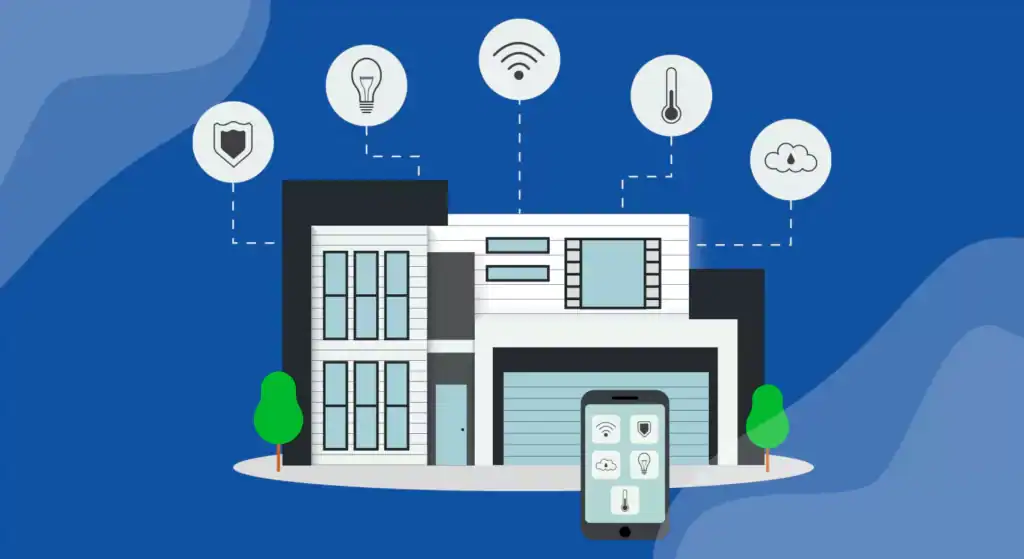In today’s digital economy, real estate influencers are transforming how properties are marketed, evaluated, and discovered. As these online personalities gain traction on platforms like Instagram, YouTube, and TikTok, the demand for strategic monetization opportunities grows. One emerging and lucrative avenue is through MLS (Multiple Listing Service) affiliate programs.
This article explores what MLS affiliate programs are, how they work, and how real estate influencers can leverage them to earn passive income while providing value to their audiences.
What Is an MLS Affiliate Program?
A Multiple Listing Service (MLS) is a cooperative database used by licensed real estate professionals to share information about properties for sale. Traditionally, access to MLS data was restricted to agents and brokers. However, many third-party platforms now aggregate MLS listings into public-facing portals such as Zillow, Realtor.com, Redfin, and others.
An MLS affiliate program allows influencers and content creators to promote these platforms or associated services (e.g., lead generation tools, mortgage offers, home valuation software) in exchange for commissions. These programs reward affiliates for driving traffic, leads, or sales through unique referral links.
Why It Matters for Real Estate Influencers
Influencers in the real estate space often cultivate niche audiences interested in buying, selling, or investing in property. By integrating affiliate programs into their content, influencers can:
-
Monetize their traffic without needing to sell physical products.
-
Provide added value to their followers by linking to reliable tools.
-
Diversify income streams, making their business more sustainable.
Unlike sponsorships or traditional ad revenue, affiliate income scales with engagement and provides long-term value with evergreen content.
Types of MLS-Related Affiliate Programs
There isn’t a one-size-fits-all MLS affiliate program. Here are common types influencers can explore:
Home Search Platforms (MLS Aggregators)
Some popular MLS aggregators offer referral programs:
-
Zillow Premier Agent: While not a direct affiliate program, influencers can partner with Premier Agents and earn by funneling leads.
-
Realtor.com and Redfin: These don’t always have public affiliate programs, but they sometimes offer partnerships via third-party affiliate networks like CJ Affiliate or Impact.
-
Mashvisor and PropStream: These investment platforms pull data from MLS and provide analytics. They offer affiliate programs with competitive commissions.
Real Estate SaaS Tools
Platforms like Placester, IDX Broker, and Real Geeks offer tools for building real estate websites using MLS data. Influencers can earn by referring agents or brokerages who need these tools.
Lead Generation & CRM Software
CRMs like Follow Up Boss or BoomTown often have referral or affiliate programs targeting agents managing MLS-based leads.
Affiliate Networks & Marketplaces
Platforms like ShareASale, CJ Affiliate, and Impact Radius aggregate many real estate-related offers, including MLS-based services. Influencers can browse and join these programs easily.
How Influencers Can Promote MLS Affiliate Links
To maximize effectiveness and stay authentic, influencers should weave affiliate promotions into their content naturally. Here are a few strategies:
Create Value-Driven Content
Examples include:
-
“Top 5 Tools for Finding Investment Properties in 2025”
-
“How I Found My Dream Home Online – My Favorite Search Tools”
-
“Real Estate Websites That Actually Work for First-Time Buyers”
Use Video Tutorials
YouTube or Instagram tutorials showing how to use an MLS aggregator or SaaS tool can drive high-intent traffic. Add affiliate links in the description or as pinned comments.
Add Resources to Your Website
A “Resources” or “Tools I Recommend” page can act as an evergreen hub for affiliate links. SEO-optimized blog posts can also attract long-tail traffic.
Email Marketing
An engaged newsletter audience is primed for affiliate offers. Influencers can recommend MLS tools during relevant market updates or property tips.
Compliance & Best Practices
Real estate influencers must adhere to FTC disclosure rules, clearly stating when a link is affiliate-based. Transparency builds trust and protects influencers from legal risks.
It’s also important to vet products and services before promotion. The real estate industry is trust-driven, and promoting subpar tools can damage credibility.
Potential Earnings
Affiliate commissions in the real estate sector vary widely:
-
SaaS tools often offer recurring commissions (10–30% monthly).
-
Lead generation services may pay per lead ($10–$50).
-
MLS aggregator tools with premium offerings may offer one-time payments ($50–$150 per referral).
Influencers with large or highly engaged audiences can turn this into a steady revenue stream, especially if they target buyers, sellers, or new agents.
Getting Started: Steps for Influencers
-
Identify your niche: Are you speaking to buyers, sellers, investors, or agents?
-
Research affiliate programs that align with your audience’s needs.
-
Apply and get approved through the official site or affiliate network.
-
Create high-quality content that provides value and context for your referrals.
-
Track performance using affiliate dashboards and tweak based on results.
Final Thoughts
MLS affiliate programs offer a smart, scalable way for real estate influencers to turn content into profit while helping their followers navigate the complex property market. Whether you’re an Instagram realtor, YouTube analyst, or TikTok house-hunter, the right affiliate strategy can elevate both your income and your brand authority.
As the real estate industry continues to evolve online, the opportunity for influencers to monetize their expertise through affiliate marketing is only growing. Now’s the time to get in.
Frequently Asked Questions
What is an MLS Affiliate Program, and how does it work?
An MLS (Multiple Listing Service) Affiliate Program is a marketing partnership between real estate influencers and platforms that aggregate MLS listings (e.g., Zillow, Realtor.com, Redfin). These programs allow influencers to promote these platforms or related services (like real estate tools or SaaS products) to their audience in exchange for commissions.
The affiliate model typically works by giving influencers a unique referral link. When a follower clicks that link and either signs up, makes a purchase, or submits a lead, the influencer earns a commission. The commission structure can vary based on the platform, ranging from one-time payments for sign-ups to recurring payments for subscriptions.
For example, Zillow’s Premier Agent program may allow influencers to refer leads to real estate agents who pay for enhanced listings or advertising. Similarly, platforms like PropStream offer investment tools based on MLS data, with influencers earning commissions when users sign up for a subscription.
How can real estate influencers benefit from MLS affiliate programs?
Real estate influencers can benefit from MLS affiliate programs in several ways:
-
Monetization of Content: MLS affiliate programs provide a way for influencers to monetize their content without having to create or sell physical products. By sharing affiliate links, influencers earn commissions when their audience engages with the promoted platform.
-
Passive Income: Affiliate programs, particularly those with recurring commissions (e.g., SaaS tools), offer a steady stream of income over time. As influencers create evergreen content (e.g., blog posts, tutorials), they can continue to earn from past promotions as long as the audience clicks through and subscribes.
-
Added Value for Followers: Real estate influencers can provide value by recommending tools and platforms that help their audience make informed property decisions. These tools, such as MLS aggregators or real estate CRMs, are essential for home buyers, sellers, and investors, which makes the influencer’s recommendations highly relevant.
-
Brand Authority and Trust: By partnering with well-known MLS platforms and real estate services, influencers enhance their credibility. Their followers trust the recommendations of influencers they already follow, which can lead to more successful conversions.
What are the legal and ethical considerations for real estate influencers in MLS affiliate programs?
Real estate influencers must adhere to legal and ethical guidelines when promoting MLS affiliate programs. These include:
-
FTC Disclosures:
-
The Federal Trade Commission (FTC) requires influencers to disclose affiliate relationships clearly. This can be done by adding a disclosure statement such as “This post contains affiliate links, and I may earn a commission if you make a purchase through them.”
-
-
Transparency:
-
Influencers should only recommend platforms or products they truly believe in. Misleading followers or promoting subpar tools could harm the influencer’s credibility and brand.
-
-
Confidentiality and Compliance:
-
Influencers must ensure they comply with MLS data usage rules. Some platforms may have specific terms regarding how their data can be used, so influencers must review and follow these terms to avoid legal repercussions.
-













